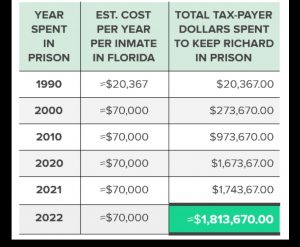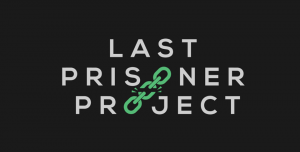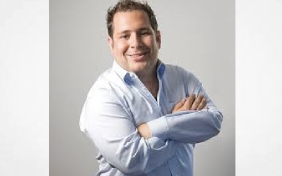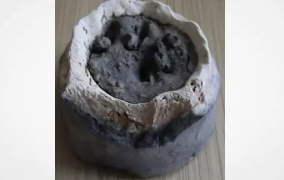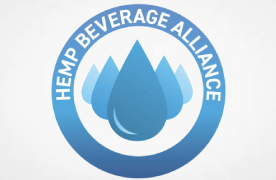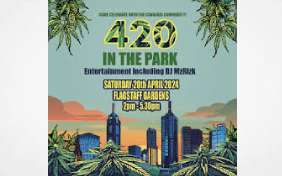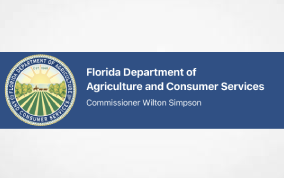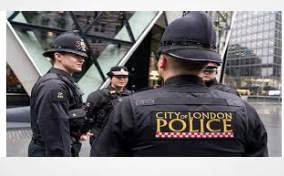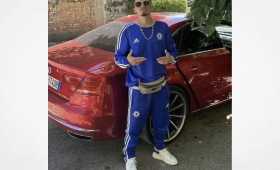If you wish to re-publish this story please do so with following accreditation
AUTHOR: Heather Allman
PUBLISHER: CANNABIS LAW REPORT
If you wish to re-publish this story please do so with following accreditation
AUTHOR: Heather Allman
PUBLISHER: CANNABIS LAW REPORT
Each prisoner costs Floridians $70,000 per year. Overall, Florida’s state prison population increased by 11-fold between 1970 and 2014 with a $1.1 billion increase in corrections expenditures and Florida’s elderly prison population has increased at a faster rate than any other age group over the past 10 years.
The huge underlying problem society truly has with marijuana is an overburdened, understaffed, overcrowded, and underfunded prison system. A system that is filled with non violent marijuana offenders.
By continuing to use an outdated prison system and a “drug reform” justice system mentality, the U.S. is witnessing serious repercussions:
- costs taxpayers money, Floridians $70,00 per year, to keep one such inmate jailed for something that is now legal in 41 states;
- tied inextricably to our national habit of sentencing non violent marijuana offenders to reprehensible mandatory minimums;
- targets working class communities through sting and reverse-sting operations;
- hinders progress and progressive thinking about reforming marijuana laws, or revisiting victims of these laws.
These cases personify antiquated behavior and current anti-establishment behavior. It challenges our collective cultural need to stand by existing marijuana convictions. Why? Because we can?
We, as a country, have been misled to believe that casualties of the War on Drugs are a problem from and for “another” time, not our problem, not our time. Plus, we’ve been indoctrinated as a culture through the last 100 years of marijuana Prohibition to think that fighting against drugs in this fabricated war is the “right thing” to do. But is it?
Nugg Club is stepping up to face the problem through their new partnership with LPP and the launch of Nugg Clubs brand, Schedule 1, which will donate a portion of profits to support descheduling marijuana from the controlled substances act. Specifically, proceeds from Schedule 1 will be donated to lobbying efforts that seek to reclassify marijuana, and to the Last Prisoner Project to free individuals in prison on non-violent cannabis charges who are serving jail because of marijuana being defined as a Schedule I drug.
You can check out the full press release here and see below for some information on the Schedule 1 strains.
At launch, Schedule 1 will include three flower strains available in Nugg Club subscription boxes and online for members to purchase via the Nugg Club add-ons menu. The strains include:
- Mimosa: This sativa-dominant strain is a cross between Purple Punch and Clementine. A daytime pick-me-up, Mimosa is great for chasing sleep away, relieving stress and sparking creativity. Its mood-boosting terpenes, limonene and beta caryophyllene, make for a zesty experience that tapers off gradually.
- MAC 1: Directly sourced by legacy-grower Capulator, MAC 1 is a smooth hybrid strain with impressive plant parents — Alien Cookies crossed with Starfighter and a Columbian landrace (aka Miracle 15). Connoisseurs can trace spice, diesel, and sour citrus in the strain’s pungent aromas.
- Sunset Cookies: A proprietary phenotype sourced from Thin Mint Cookies and Sherbet genetics, Sunset Cookies is carefully bred in Coachella Valley to produce a mellow hybrid boasting with notes of fruity blueberry and lavender citrus. Sunset Cookies provides a super sweet balance between hazy and clear-headed effects.
On March 4, 2021, I spoke in-depth with Alex Milligan, Co-Founder and CMO of Nugg Club about their new partnership with the Last Prisoner Project, the launch of their flower brand Schedule 1, and how the profits will support descheduling marijuana from the controlled substance act and will be donated to lobbying efforts that seek to reclassify marijuana and to LPP.
Ultimately, we talked about the importance of social justice reform in the Cannabis space.
Cannabis Law Report: How did you get started in Cannabis?
NC: Ten years ago, my two co-founders (Kam & Collin) and I met as fraternity brothers at USC. Our junior year, we started working together, growth-hacking for Lyft. In ten months, we brought them 40,000 new users and earned a quarter million bucks doing it. We used that money as seed funding to start Nugg after seeing an opportunity to bring the same on-demand technology to the cannabis space that Lyft and Uber had brought to rideshare.
We launched as one of the first online marketplaces for cannabis delivery, and a year later launched NuggMD, one of the first telemedicine platforms for medical cannabis evaluations. But our interest in cannabis stemmed from far more than just an entrepreneurial opportunity.
Like many cannabis founders, we had personal experience with the plant and had countless friends and family members who had their lives completely transformed by it.
We knew how many people it was helping, and wanted to make it available and acceptable to many more. So we set out, determined to build the world’s most customer-centric cannabis company and help accelerate the adoption of cannabis.
CLR: Actions have consequences, so why should we care about people being incarcerated for cannabis?
NC: It’s a good question because all too often we run into people who think “I don’t use cannabis, so why should I care if people go to jail for it? It doesn’t affect me.”
But mass incarceration affects us all, down to the very core of our society and our personal lives.
There is no nook or cranny in American existence that hasn’t been invaded by the specter of mass incarceration.
With nearly 1% of our population incarcerated, almost all of us know someone who’s in prison, with a huge proportion of those prisoners being there for non-violent offenses, including drug offenses–most of which are for cannabis.
Non-violent means they aren’t a danger to any of us, but their children are growing up without parents, orphaned by our system. Our society was destabilized as a result, with a complete breakdown of our family structures and we aren’t just being charged $70,000 per prisoner as taxpayers.
We’re also paying to support these broken families through welfare. We’re paying extra enforcement costs due to the increase in violent crimes.
We’re paying for loss in our place in the world market because we’ve denied student loans and financial aid to drug offenders and have a less-educated workforce as a result.
Look around. There’s no way we could cover all of the reasons we should care in the answer to one question. It would take volumes.
But a picture says a thousand words. Look around. Do you see a stable and healthy society, or one on the brink of collapse? The Drug War is one of many ROOT causes for this breakdown.
The mission behind Schedule 1 is to help heal all of this collateral damage.
CLR: What does this have to do with race relations or social equity?
NC:
– In 2008, 1 in 57 children, 1 in 28 Latin American children and 1 in 9 black children had an incarcerated parent.
– 1 in 5 people incarcerated are imprisoned for a drug offense.
– 4 TIMES more black people are arrested for marijuana than white people despite the fact that they use cannabis at roughly the same rate.
– Worse, those who are imprisoned for drug offenses are barred in most jurisdictions from receiving food stamps, federal student loans, good paying jobs, and so many other opportunities that set them so far back financially that we have almost developed an inescapable caste system. Their children suffer from this too. And so do we all.
Mass imprisonment for drug offenses is the clearest example of endemic racism.
This can’t be fixed by simply throwing our hands up and legalizing it. We have to fight to get currently incarcerated parents returned to their children.
We have to return lost economic opportunities to families so their children can receive the opportunities they deserve.
America’s mass incarceration is both evidence of, and a continuing cause of racial inequality in our nation.
CLR: How does this affect our economy? Cost to taxpayers? ($70,000 per year to Floridians alone)
NC: As explained above, the consequences of mass incarceration are so far reaching that every single one of us is affected. Some examples are:
- payment for unnecessary incarceration,
- support of the children who’ve been orphaned by the (in)justice system,
- medical care for indigent patients that can’t find work due to criminal records,
- unavailability of qualified workers due to barriers to education,
- increased crime due to lack of opportunity and hopelessness.
Furthermore, the social destabilization has led to a decrease in our safety, rather than the increase that Nixon promised when he began this ill-conceived mission in the 70s.
Does the nation seem safer now to you than it did back then?
We’re ALL suffering due to these terrible policies that increase crime due to collateral damage instead of increasing safety.
CLR: Why change now?
NC: Well, hopefully it’s not too late to change. A lot of damage has been done and it will take decades to fix…decades.
CLR: What’s wrong with the current dynamic and situation? Mandatory minimums, for example, do they fit the crime?
NC: As to the question of whether mass incarceration and mandatory minimum sentencing for non-violent drug offenses is cruel and unusual punishment should be obvious by now.
We have the largest prison population in the world. We, a nation of 330 million, physically have more prisoners than every single oppressive regime we’ve ever censured.
This isn’t just per capita. We physically have the largest number of prisoners in the world. Yet we call ourselves leaders of the free world? We won’t be free till we end this.
CLR: Cost of reputation of policymakers?
NC: I’m not sure if I should bring up the fact that Biden wrote the 1994 Crime Bill or that more people were arrested for marijuana under the Trump administration in 2019 than all violent crimes combined. They both seem to be sensitive subjects.
One thing worth mentioning is that the more a government passes legislation that no one will follow, or that they are unable to effectively enforce, the less hard power they have.
Our government is losing the power to enforce anything because they tried to regulate everything.
CLR: Cost of reputation to rule of law in the past and moving forward?
NC: Moving forward, were it not to change, it would be unspeakable. Actually, the situation already is unspeakable.
The War on Drugs will go down as one of the darkest times in American history. One of the darkest times in the world.
But the good news is that it’s already changing. We’re changing these bad policies right now, as we speak.
Almost every new substantive cannabis bill is including equity efforts. Many bills are dedicating funds to restoration of those communities most affected by the drug war, and toward helping those who need to get back on their feet. There’s a huge expungement movement.
We have miles to go, decades. But the momentum is already there. No one can stop cannabis reform or equity efforts. We’ll get this done.
CLR: In light of marijuana legalization for some purpose in nearly 45 states, do you think it is just to reform, release, legislate, and expunge?
NC: If you’re talking about justice regarding ending mass incarceration over marijuanaband allowing sick patients to benefit from a better treatment option? Of course. It should have been done years ago. I’m surprised we put up with prohibition for this long.
That statistic that I mentioned above, that we arrested more people for marijuana than all violent crimes combined in 2019, it’s been true of other recent years too, not just under the past administration. But this is changing so rapidly, so suddenly. Policies that are put in place today will take a few years to be seen, but the change is happening now.
You know how they say it’s darkest before dawn? This is our darkness before dawn.
CLR: What did some states do right in their Cannabis legislation and frameworks, regarding social justice?
NC: It’s so easy to complain about social equity programs being poorly administered. But this is uncharted territory. There are so many things to consider, including constitutional issues.
It’s difficult to balance social justice reform and we shouldn’t concentrate on criticizing program failures.
We should concentrate on applauding all efforts, and learning from mistakes. That’s why I love the tone of your question here.
One of the biggest issues is that it’s hard to get a license in many jurisdictions if you have a past drug conviction, even for marijuana. Where are we going to get our cannabis experts if they’re excluded for being experts??
Everyone has had varying levels of success implementing these efforts. I think it would be more productive to state which policies should be pursued.
- We should give priority licensing to those with low level cannabis offenses, or at the very least, never exclude them from licensing.
- Every state should be working on expungement for non violent drug offenses. This will provide massive new economic opportunities in suffering communities, including access to student loans and jobs.
- Every program should provide application assistance and free training to minority owners so our ownership in the industry can be more reflective of our natural population distribution.
- We should be providing priority business loans to minority applicants. Funding is a huge obstacle.
- We should include funding for police retraining to end racial profiling in enforcement and other socially harmful practices.
Schedule 1 will be supporting all of these efforts through donations and other means of instrumental support. And we need to think outside the box.
For instance, perhaps minority participation in the industry isn’t just slow because of lack of opportunity. It might also be that they’re more concerned about enforcement, given the uneven distribution of our cannabis arrests.
Can they be blamed for passing on this business opportunity knowing that cannabis is still federally illegal?
We need to figure out how states can provide reassurances to these potential business owners that they won’t be disproportionately enforced upon in a similar way to our disproportionate arrest records. Los Angeles is providing business compliance training.
That’s a huge step, but I think ultimately the fact that it’s still federally illegal is a huge obstacle to equity.
We must de-schedule cannabis before these programs can make game-changing headway. Then all of these great concepts will have the resources they need to truly work.
CLR: Why is the LPP necessary?
NC: The Last Prisoner Project is a lifeline for those currently incarcerated. They won’t let us forget about the drug war’s casualties till they’re all free.
Can you imagine serving life in prison for something that’s legal in 41 states?
Our policy of mass-imprisonment exists despite the fact that American citizens have near universal agreement that we must end cannabis incarceration. And a majority of Americans support decriminalization of ALL drugs.
We’ve seen the consequences of overzealous drug enforcement, but it takes federal policy years to catch up to public opinion.
We need advocacy work like the LPP’s, and their full-time effort to push for reform.
- They’ve been instrumental in the successful push to include expungement in cannabis bills and release current prisoners.
- They give prisoners a voice by inviting the general public to write them supportive letters.
- They give prisoners pro-bono legal support to obtain resentencing hearings.
- They advocate for clemency.
- They advocate in state and federal legislatures for policy change.
Quite frankly, they’re heros.
CLR: Where are the shortfalls in the system?
NC: The biggest problem is that we’re trying to implement untested programs for social equity improvement.
This is a trial-and-error process and it’s beyond frustrating for those involved. The only solution for this is patience and ingenuity.
We’re going to have to keep making adjustments till our industry reflects true equity and until the Drug War is over and the prisoners are free.
CLR: Cost of reputation to the justice system and the mechanics involved if we revisit these sentences?
NC: What good is our justice system if they refuse to admit to mistakes and correct them? Is it even possible to dispense justice with a system like that?
The better question is what will be the cost of reputation if we don’t? It will take a lot of effort to do this. Tens of thousands of courtroom hours. But how could we morally even begin to weigh that cost against the price in human suffering that we’re currently paying?
CLR: In your opinion, what are the biggest challenges faced by Cannabis operators and executives — that are possibly not faced by their regular business counterparts — especially when it comes to the Cannabis space.
NC: No other industry is more regulated, but these regulations aren’t even clear. Often, we’ll reach out to the state authorities for an answer to a vague or unclear regulation and receive an even more unclear response. Not their fault.
California’s doing a great job of trying to respond to all of these inquiries. It’s just that they don’t know the answers to all of these questions either because they’re still figuring it out themselves or because we’re hashing it out in the courts.
Regulators must operate within the bounds of the law. But lawmakers don’t always know which issues need to be addressed and which policies will create pitfalls for business owners, enforcement and customers.
Other established industries have already worked out these issues. We will too, just like the alcohol industry did. But it will take a lot of trial and error.
Meanwhile, we’re all trying to expand and grow while regulations and laws change at lightning speed. It’s like trying to hit a moving target while on the back of a galloping horse. It’s do-a-ble, but not without some serious skills and resources.
It’s a fascinating challenge to build a brand like Schedule 1 in the midst of all this change.
About Nugg Club
Nugg Club is California’s first subscription cannabis club and helps anyone explore the world of cannabis at 50-60% below retail. The company surprises consumers each month with a box of full-sized, premium cannabis products that are carefully curated and personalized for each customer and delivered at a wholesale price.
In doing so, the service helps brands connect with thousands of targeted customers, collect intimate data they can’t get elsewhere, and launch new products. Nugg Club was launched in 2020 by the team behind NuggMD, the nation’s leading medical cannabis technology platform, serving patients in California, Nevada, New York, Oklahoma, Pennsylvania, Ohio, Missouri, and now New Jersey. Nugg Club services Los Angeles, Orange County, and the Inland Empire areas
Nugg Club Founded: April 2020
Headquarters: California

